Abstract
Virazole (1-β-d-ribofuranosyl-1,2,4-triazole-3-carboxamide) is a highly soluble new synthetic nucleoside having significant, reproducible activity against a broad spectrum of deoxyribonucleic acid and ribonucleic acid viruses in vitro. The drug inhibited viral cytopathogenic effects in monolayers of cells infected for 3 days with type 3 adeno, types 1 and 2 herpes, myxoma, cytomegalo, vaccinia, infectious bovine rhinotracheitis, types 1A, 2, 8, 13, and 56 rhino, types 1 and 3 parainfluenza, vesicular stomatitis, subacute sclerosing panencephalitis, Semliki Forest, Newcastle disease, and measles viruses. Hemagglutinin production by influenza A2, influenza B, and type 1 parainfluenza viruses in chicken embryo cells was reduced by Virazole treatment. Recoverable intra- and extracellular virus titers were reduced by the drug in experiments with type 1 herpes, vaccinia, type 3 parainfluenza, and vesicular stomatitis viruses. Plaque formation by type 1 herpesvirus was also inhibited by exposure of the infected cells to Virazole. Pretreatment of cells with the compound, followed by its removal before addition of type 1 herpesvirus, severely lessened the antiviral activity; the compound was still moderately effective in reducing the viral effects on the cells when added as long as 22 hr after the virus. Parallel experiments, in which the antiviral activity of a number of known active drugs was compared, indicated Virazole to have at least a comparable degree of activity, and it was also active against a wider variety of viruses than any of these known active materials. The CCED50 of Virazole to chicken embryo cells was approximately 1,000 μg/ml, although concentrations as low as 10 μg/ml caused slight (15%) inhibition in total cellular protein after 72 hr of incubation.
Full text
PDF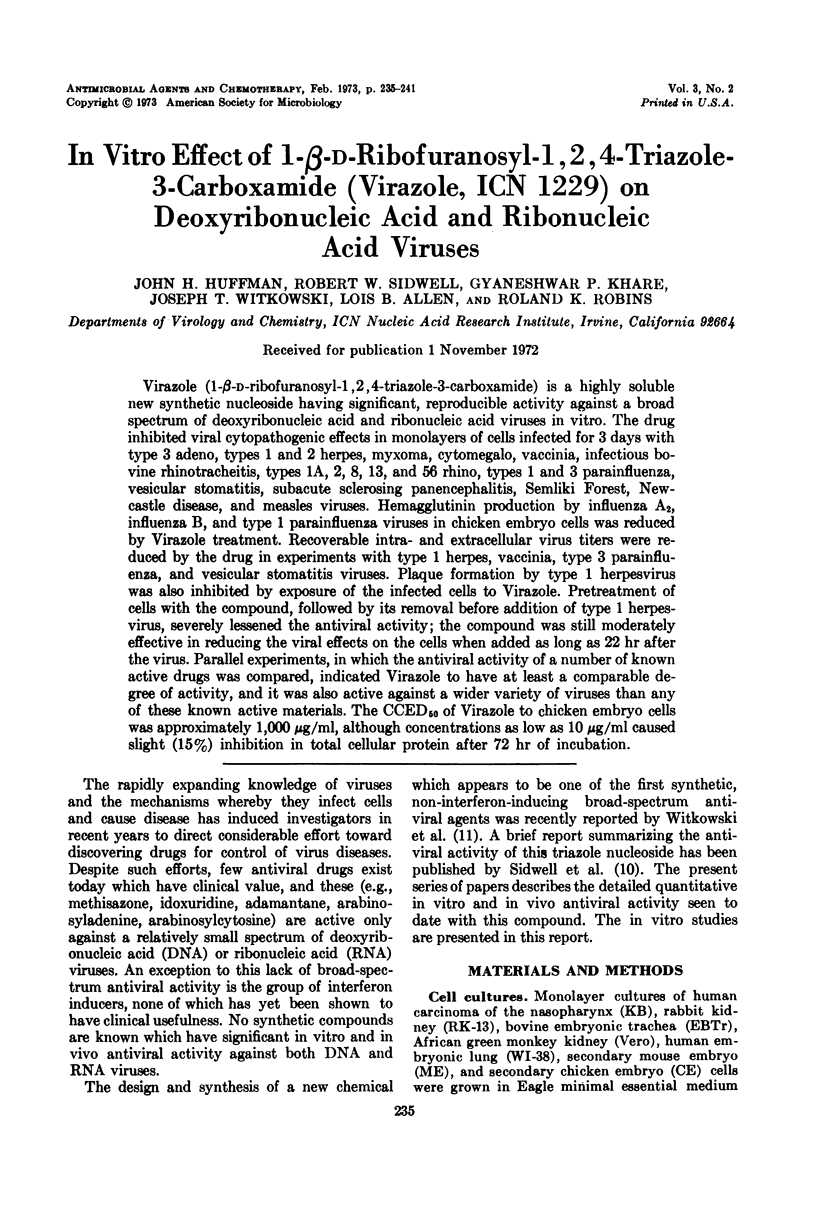
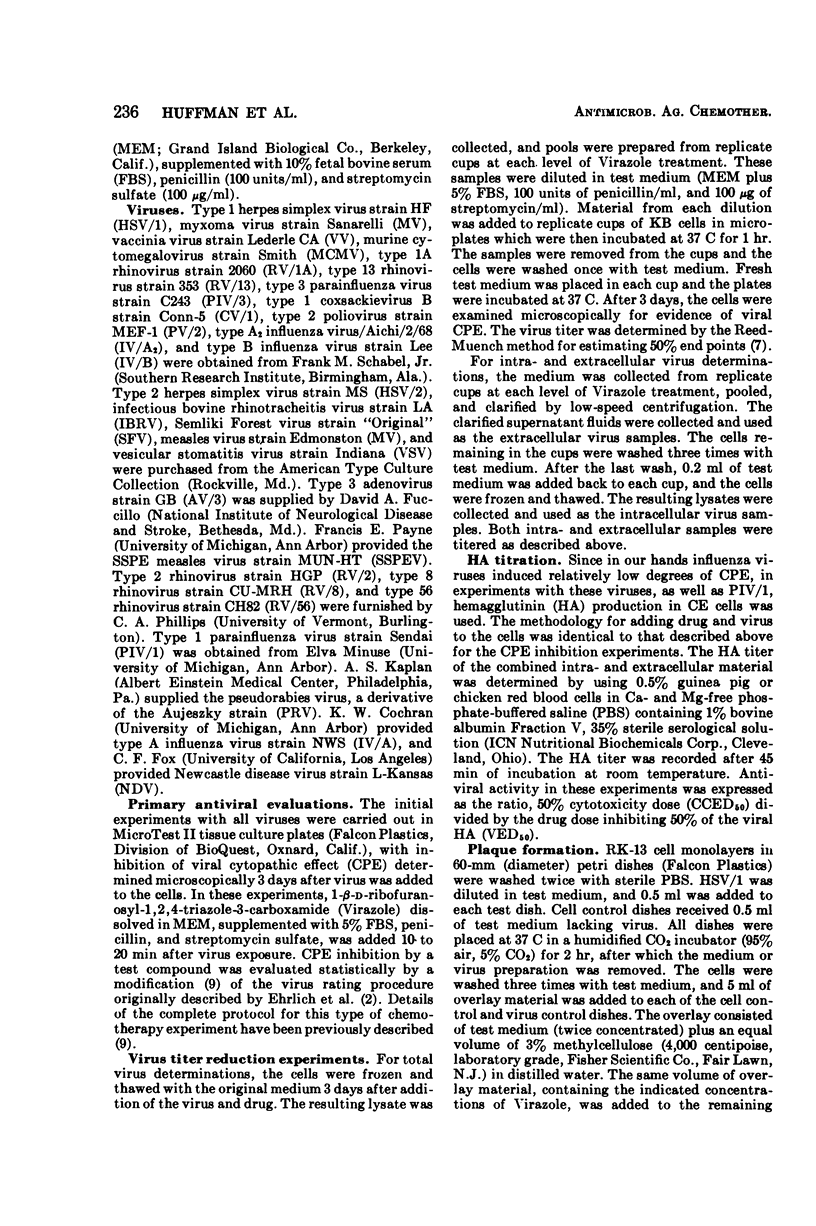
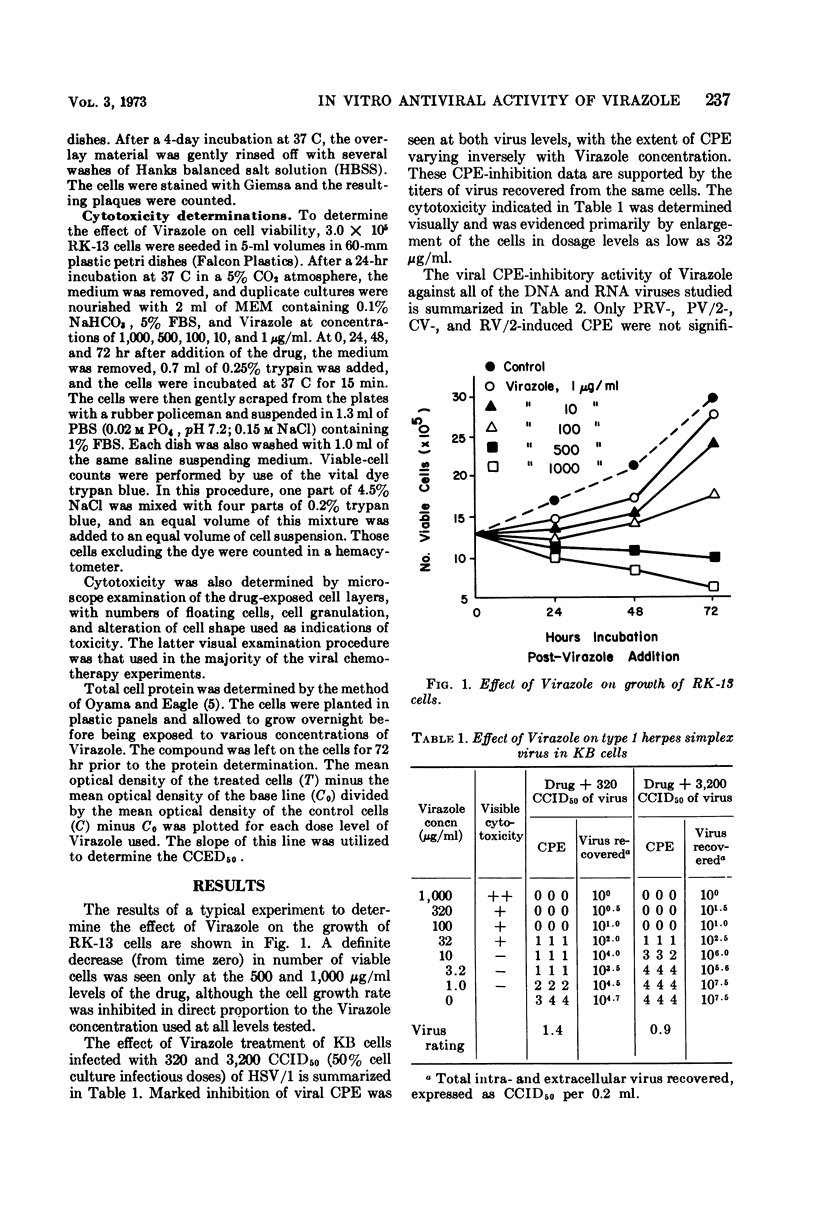
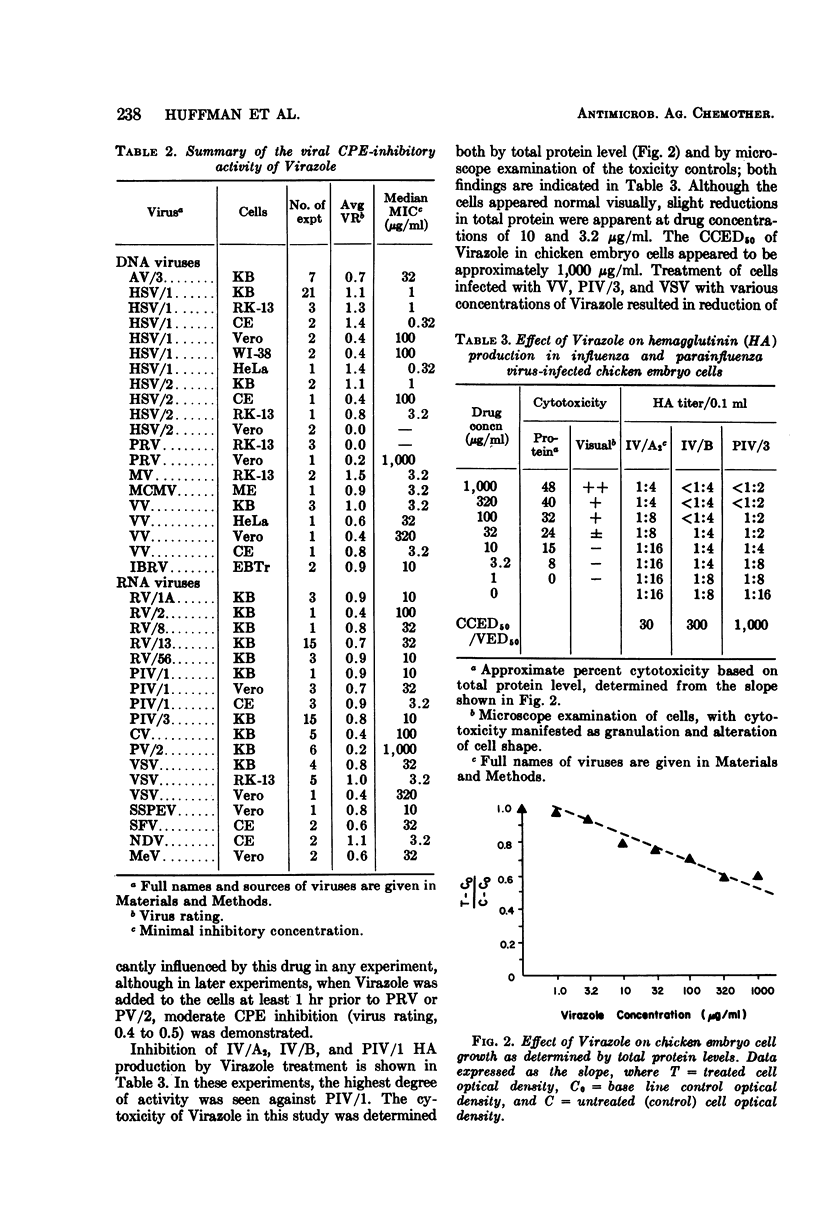
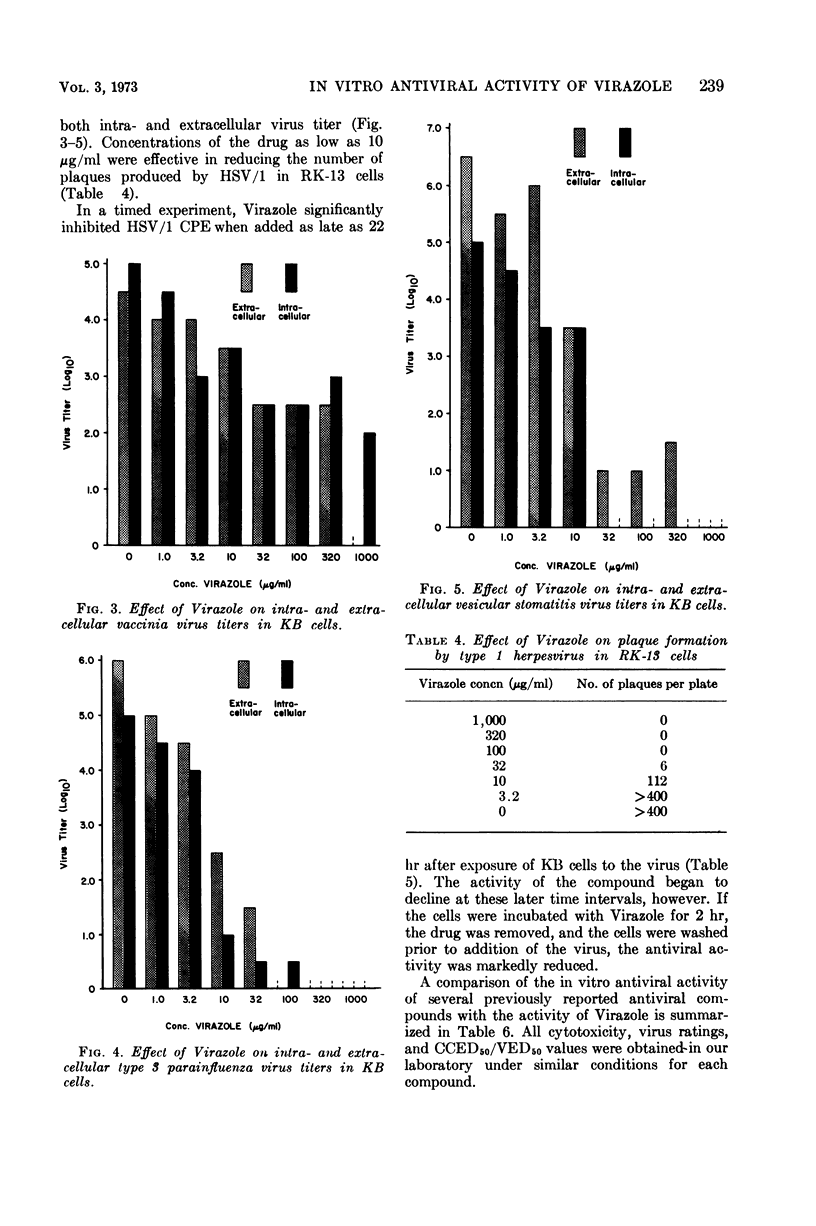
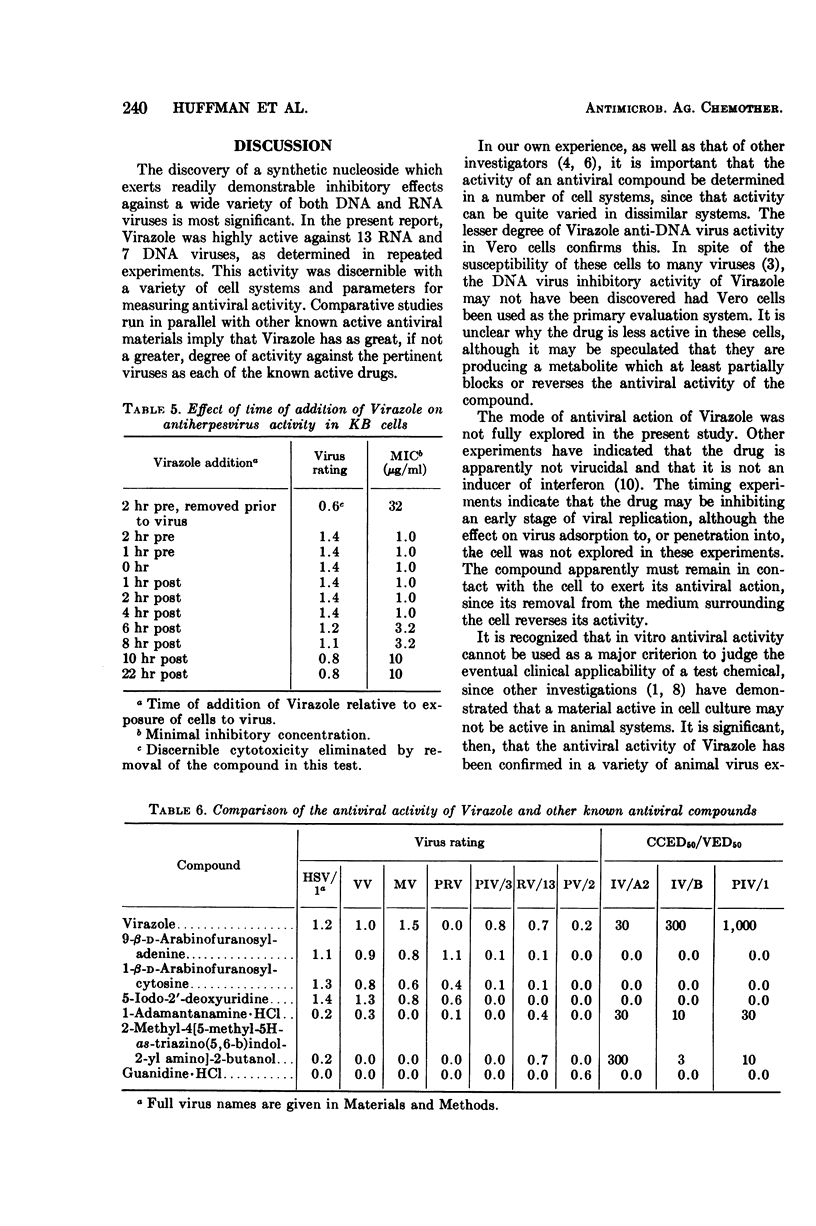
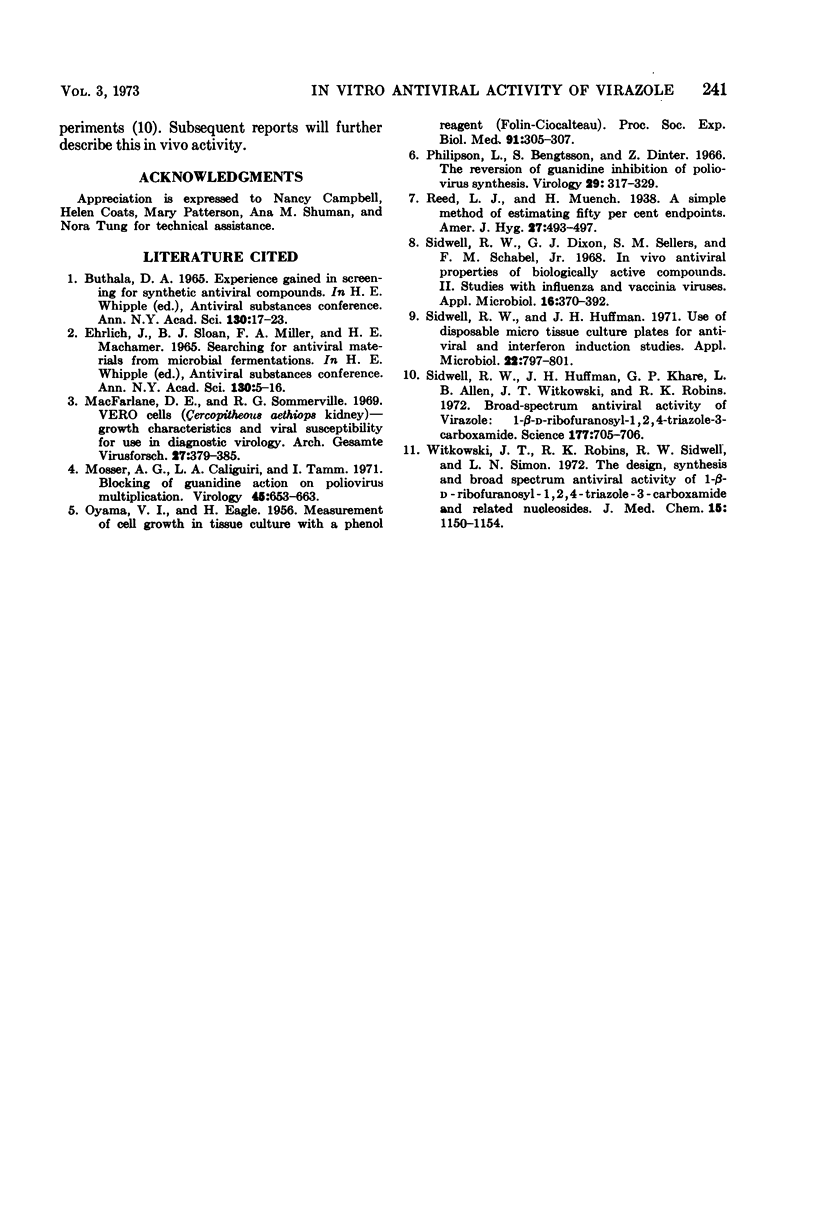
Selected References
These references are in PubMed. This may not be the complete list of references from this article.
- Buthala D. A. Experience gained in screening for synthetic antiviral compounds. Ann N Y Acad Sci. 1965 Jul 30;130(1):17–23. doi: 10.1111/j.1749-6632.1965.tb12534.x. [DOI] [PubMed] [Google Scholar]
- Ehrlich J., Sloan B. J., Miller F. A., Machamer H. E. Searching for antiviral materials from microbial fermentations. Ann N Y Acad Sci. 1965 Jul 30;130(1):5–16. doi: 10.1111/j.1749-6632.1965.tb12533.x. [DOI] [PubMed] [Google Scholar]
- Macfarlane D. E., Sommerville R. G. VERO cells (Cercopithecus aethiops kidney)--growth characteristics and viral susceptibility for use in diagnostic virology. (Brief report). Arch Gesamte Virusforsch. 1969;27(2):379–385. doi: 10.1007/BF01249659. [DOI] [PubMed] [Google Scholar]
- Mosser A. G., Caliguiri L. A., Tamm I. Blocking of guanidine action on poliovirus multiplication. Virology. 1971 Sep;45(3):653–663. doi: 10.1016/0042-6822(71)90179-6. [DOI] [PubMed] [Google Scholar]
- OYAMA V. I., EAGLE H. Measurement of cell growth in tissue culture with a phenol reagent (folin-ciocalteau). Proc Soc Exp Biol Med. 1956 Feb;91(2):305–307. doi: 10.3181/00379727-91-22245. [DOI] [PubMed] [Google Scholar]
- Philipson L., Bengtsson S., Dinter Z. The reversion of guanidine inhibition of poliovirus synthesis. Virology. 1966 Jun;29(2):317–329. doi: 10.1016/0042-6822(66)90039-0. [DOI] [PubMed] [Google Scholar]
- Sidwell R. W., Dixon G. J., Sellers S. M., Schabel F. M., Jr In vivo antiviral properties of biologically active compounds. II. Studies with influenza and vaccinia viruses. Appl Microbiol. 1968 Feb;16(2):370–392. doi: 10.1128/am.16.2.370-392.1968. [DOI] [PMC free article] [PubMed] [Google Scholar]
- Sidwell R. W., Huffman J. H., Khare G. P., Allen L. B., Witkowski J. T., Robins R. K. Broad-spectrum antiviral activity of Virazole: 1-beta-D-ribofuranosyl-1,2,4-triazole-3-carboxamide. Science. 1972 Aug 25;177(4050):705–706. doi: 10.1126/science.177.4050.705. [DOI] [PubMed] [Google Scholar]
- Sidwell R. W., Huffman J. H. Use of disposable micro tissue culture plates for antiviral and interferon induction studies. Appl Microbiol. 1971 Nov;22(5):797–801. doi: 10.1128/am.22.5.797-801.1971. [DOI] [PMC free article] [PubMed] [Google Scholar]
- Witkowski J. T., Robins R. K., Sidwell R. W., Simon L. N. Design, synthesis, and broad spectrum antiviral activity of 1- -D-ribofuranosyl-1,2,4-triazole-3-carboxamide and related nucleosides. J Med Chem. 1972 Nov;15(11):1150–1154. doi: 10.1021/jm00281a014. [DOI] [PubMed] [Google Scholar]


